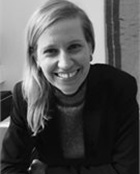DATA FUTURES
SODAS Inaugural Lecture Series 2017
Data has become part of the basic fabric of social life in many different ways. What sorts of questions do we need to start asking in order to understand, prepare for, and shape our futures with and through digital data?
The Centre for Social Data Science (SODAS) at the University of Copenhagen is convening its inaugural Lecture Series on the theme of Data Futures. Speakers from different disciplines are asked to reflect on the most pressing questions for contemporary society as we face futures living with and through data. The lectures will be aimed at an interdisciplinary audience - all welcome.
 The Centre for Social Data Science (SODAS) is pleased to announce the fourth lecture in the DATA FUTURES Lecture Series, on Friday 2nd June, 11.00am in Room 26.2.21, CSS Campus, UCPH. Please note that the room has changed!
The Centre for Social Data Science (SODAS) is pleased to announce the fourth lecture in the DATA FUTURES Lecture Series, on Friday 2nd June, 11.00am in Room 26.2.21, CSS Campus, UCPH. Please note that the room has changed!
The lecture will be given by Professor Urška Šadl, who is professor of Law at the European University Institute. Her primary research interests include the empirical studies of European courts and their jurisprudence, the language of courts, the theory and practice of judicial precedents as well as topics in European constitutional law more generally.
Leading cases in European Union law
When a court decides a case, it resolves a dispute between two parties, and renders a judgment. Most judgments become quickly forgotten. A small fraction of them becomes famous.
Translated into legal terminology, the question is what makes certain cases leading cases? Is it an instantaneous act by the Court which once and for all establishes a great legal principle? Or is it, rather, a protracted process in which a certain case only gradually gains this symbolic standing?
If the cases contain inherent leading case material, what is this leading case material precisely?
To answer this question the paper uses existing and novel measures of case centrality, which were developed to analyse citation networks, and applies them to a network of judgments of the Court of Justice of the European Union. It develops a so-called versatility coefficient to identify several factors that play a role in the formation of leading cases.
Any questions on the lecture, please contact Antonia Walford: antonia.walford@ucl.ac.uk
